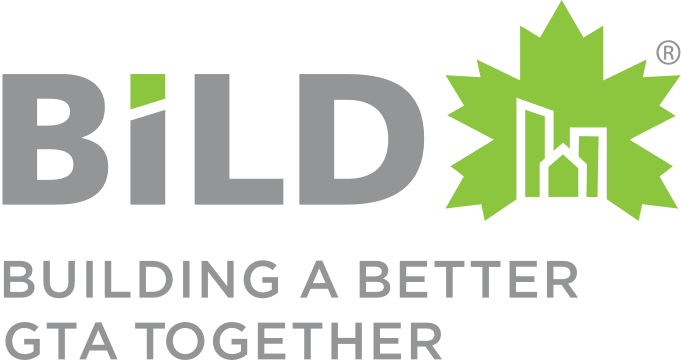
Toronto mayoral by-election
Hey, Toronto, on June 26, vote for housing!
In Toronto’s mayoral by-election, let’s make sure that housing is a top priority.

Experts, the industry and governments agree that Ontario’s housing crisis, centered on the Greater Toronto Area, is firmly rooted in a shortage of new housing and the length of time it takes to build new homes.
The provincial government has committed to enabling the construction of 1.5 million homes over the next decade to increase housing supply and choice for residents, improve affordability and bring balance to the market. Reaching this goal would require approximately doubling the current rate of housing starts in the province.
To contribute its share to achieving this goal, the City of Toronto needs to build 285,000 new homes of all types by 2031. In the past decade, total housing starts in Toronto were 182,374 or approximately 18,000 per year. This means that in order to contribute its share of housing, Toronto must increase housing starts by 160% annually.
Meeting this objective will require that all levels of government—especially municipal governments—and the industry work together to accelerate the building of new homes. For the City of Toronto, it will require council and the mayor to maintain a clear focus on delivering housing and policies that support housing.
The Building Industry and Land Development Association (BILD) is recommending that the city and mayoral by-election candidates focus on four critical priorities to support expanding housing supply and choice in Toronto and bringing back affordability:
1. timely approvals of new housing,
2. efficient land use,
3. limiting added municipal costs of new housing, and
4. focusing on housing-supportive infrastructure and social and community services.
Read BILD’s detailed housing policy recommendations and summary of key candidates’ housing platforms.
1. Increase housing supply and make homes more affordable by speeding up approval times and eliminating red tape.

Lengthy approval processes delay the addition of new housing supply and add costs to new housing. Based on a 2022 benchmarking study of major Canadian municipalities, the City of Toronto ranked last in approval timeframes, averaging 32 months on common types of new housing approvals, four and a half times longer than the regulated maximum allowable under the Planning Act and significantly worse than the 21 months recorded for the city in the 2020 benchmarking study.
Not only do delays limit supply, which in itself drives costs, but they also add tens of thousands of dollars in direct costs per housing unit. The same benchmarking study estimated that each month of delay added in excess of $2,000 per unit per month to the cost of a 750-sq.-ft.-unit.
In its Housing Action Plan, the city has committed to making improvements, and any future mayor must support and accelerate this commitment.
2. Implement more efficient land use to enable the addition of housing supply and choice.

The supply and affordability of new homes depend on land availability. In a city like Toronto, with fixed municipal boundaries, we need to use the land we have more efficiently. This means having zoning that enables greater residential densities within neighbourhoods and along major streets, more as-of-right zoning to make it easier to add housing and the removal of exclusionary zoning.
Under the Housing Action Plan, the city is studying the possibility of permitting up to four housing units per lot in existing neighbourhoods. The next mayor must support this type of efficient land use.
3. Limit further affordability erosion by capping municipal costs added to new housing.

Almost 25% of the cost of an average home consists of fees, taxes and charges levied by all levels of government. While HST and LTT are part of these costs, well over half of the added costs comes from municipalities. According to the benchmarking of Canadian municipalities mentioned above, the City of Toronto recorded the highest charges per unit amongst the studied municipalities for low-rise developments ($189,325 per unit) and the third highest for high-rise developments ($99,894 per unit). The City of Toronto’s levies on new homes have increased almost 1000% since 2004, driving up the cost of new homes.
Capping or limiting charges on new homes will require the city to seek efficiencies and find alternative ways to fund hard and soft infrastructure. We support calls for all levels of government to work together to identify new holistic and sustainable funding mechanisms for municipalities.
4. Focus on housing-supportive infrastructure and community/social services.

The supply of housing is highly dependent on critical services and transportation infrastructure. The city must accelerate the development of infrastructure, community services and social services to match the acceleration of housing development. It must also recognize that the burden of paying for critical hard and soft infrastructure has to be shared, which means that a new, holistic funding model needs to be developed with all three levels of government.
What can you do?
Your opinion matters on by-election day. Vote for a mayoral candidate who supports housing.
- Talk to the mayoral by-election candidates.
- Tell candidates that adding housing supply in your town or city matters.
- On mayoral by-election day, vote for housing by supporting candidates who support housing. See BILD’s summary of key candidates’ housing platforms.
More resources
For more information on the City’s election process, visit Learn More About City Elections – City of Toronto.


